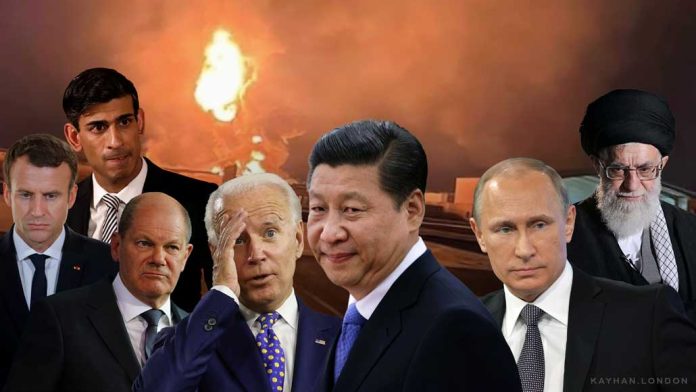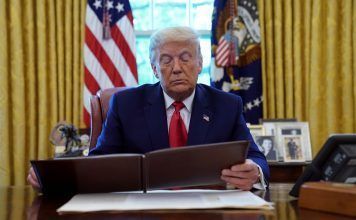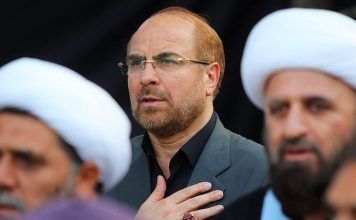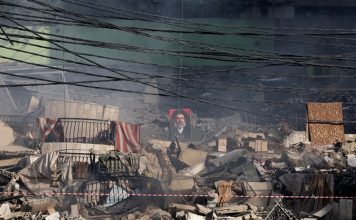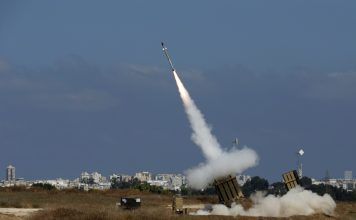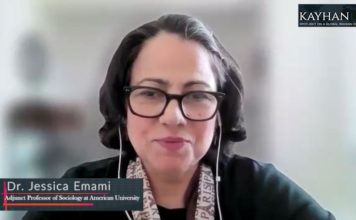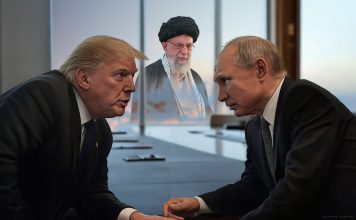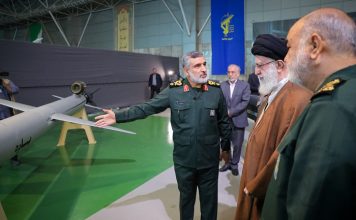It has been nearly four months since the Oct. 7 deadly attack by Hamas on Israel, which sparked the war in Gaza. During the same period, the Houthi rebels in Yemen have continued targeting commercial shipping and oil tankers in the Red Sea and the Bab al-Mandab Strait. And recently, the Islamic Revolutionary Guards Corps (IRGC) launched a series of missile and drone attacks on Syria, Iraq, and Pakistan on Jan. 17.
The IRGC’s missile attacks on Erbil, the capital of the Kurdistan region in Iraq, killed a prominent business executive, Peshraw Dizayee, and four members of his family. The Islamic Republic authorities claimed that the strikes targeted a “Mossad base of operation” and an “anti-revolution group.”
Four other ballistic missiles hit the city of Idlib in northwestern Syria. While the IRGC claimed it attacked a Daesh base of operation in Syria, the Beirut-based Al Mayadeen news network, closely linked to Hezbollah, said the intended target was the region under the control of Tahrir al-Sham, a Sunni Islamist political and armed organization opposing the Syrian regime of President Bashar al-Assad.
OPINION: Blast At Missile Depot In Northeast Iran Is Yet Another Embarrassment for IRGC
The Iranian regime has assumed responsibility for these missile attacks, claiming that they were in retaliation to two bomb attacks on Jan. 3, which killed 90 people and injured 200 in the southeastern province of Kerman, and an attack on border guards in the city of Rask in the southeast province of Sistan and Baluchistan.
It is worth noting that the Afghanistan-based “Khorasan ISIS” has claimed responsibility for the Kerman bombings. While the Iraqi government and Iraqi Kurdistan authorities have condemned these attacks, Bashar al-Assad’s regime has not reacted to the IRGC’s missile strikes in Syria.
A day after the attacks on Iraq and Syria, the IRGC’s missiles and drones hit several locations in Pakistan’s Baluchistan region. Although IRGC commanders claimed the strikes on Pakistan aimed to foil the operations of a “terrorist group,” Jaish al-Adl, the Pakistani government said the attacks “violated its sovereignty” and caused civilian deaths.
Following the IRGC attack, Pakistan’s government openly declared that “all options were on the table,” and after it stated that “diplomatic talks between Tehran and Islamabad had broken down,” its military fired missiles at several locations deep within Iranian territory, killing at least nine people including two women and five children.
According to the Haalvsh news agency, which reports on events and developments in Sistan and Baluchestan regions, most of the victims were members of “separatist groups” from villages in Saravan County.
“Two senior Baluch separatist leaders, Basham Baluch and Doustin, were the prime targets of the attack,” the report said.
Brigadier-General Hassan Hassanzadeh, the IRGC commander for Greater Tehran, has reportedly said that Iran’s Supreme Leader Ali Khamenei had ordered the missile attack on Erbil.
[aesop_image img=”https://kayhanlife.com/wp-content/uploads/2023/11/2023-11-19T130140Z_1470826454_RC2DG4AWO8VE_RTRMADP_3_IRAN-KHAMENEI.jpg” panorama=”off” credit=”Islamic Republic’s Ali Khamenei speaks during a meeting at the IRGC Aerospace Force achievements exhibition in Tehran, Iran November 19, 2023. REUTERS./ ” align=”center” lightbox=”on” captionsrc=”custom” captionposition=”left” revealfx=”off” overlay_revealfx=”off”]
Pakistan has declared that it is ready to respond to Iranian aggression. Meanwhile, Iranian armed forces completed its “Defender of Velayat 1402 Skies’ Defense Exercises” on Jan. 19.
According to unconfirmed reports, the IRGC has deployed missile launchers to the Iran-Pakistan border. Other reports suggest that after the exchange of missile attacks, Pakistani fighter jets entered Iranian airspace, but no orders were issued for the Iranian armed forces’ air defense units to confront them.
Senior security officials have warned that Pakistani armed forces, which have nuclear capabilities, have been placed on “high alert.” China has offered to mediate between Tehran and Islamabad to defuse the tension.
The two “Islamic republics” have always boasted about their cordial relationship and have signed several military and security pacts, including ones to combat terrorism.
The notion of Iran targeting Jaish al-Adl without notifying Pakistan raises several questions, prompting some people to speculate that the two “Islamic republics” coordinated the recent missile attacks.
The IRGC’s missile strikes on Iraq, Syria, and Pakistan coincided with Hezbollah’s operation in northern Israel and Yemeni Houthi’s attacks on commercial shipping and oil tankers in the Red Sea.
Although in recent weeks senior Israeli and Western officials have said repeatedly that the Islamic Republic was coordinating these attacks, with the exception of two rounds of air strikes on Houthi bases in Yemen, they have yet to take a decisive step to defuse the tension.
In their news briefings and speeches, American and British officials continually warn Iran about the dire consequences of the actions of its regional proxies. However, Tehran has not heeded these warnings so far. Iran’s regional elements have enabled the IRGC to escalate the tension methodically.
While Iranian officials argue that the IRGC has been trying to restore calm and stability in the region, most analysts and government officials in the West have concluded that the Islamic Republic’s goal is to fuel unrest in the area.
Western governments do not wish to engage in a Ukraine-like conflict in the Middle East. They seem to have adopted a new take on the current crisis, given the failure of their diplomatic efforts to defuse the tension and curtail the actions of the Islamic Republic and the IRGC in the region.
Some in the West believe that China and Russia are using their lackeys, i.e., Iran and North Korea, to wage a war against Western values and interests.
In a speech at Lancaster House in London on Jan. 15, UK Secretary of State for Defense Grant Shapps spoke about a “pre-war world,” warning that “in five years, we could be looking at multiple theaters including Russia, China, Iran, and North Korea.”
“Ask yourself, looking at today’s conflicts worldwide, is it more likely that the number grows or reduces? I suspect we all know the answer. It will probably grow, so 2024 must mark an inflection point,” Mr. Shapps noted.
“Today, Russia and China have been joined by new nuclear, and soon to be nuclear, powers. North Korea promised to expand its nuclear arsenal. And then there is Iran, whose enriched uranium is up to 83 percent, a level at which no civilian application exists,” Shapps added.”
Secretary Shapps’ speech contained two significant warnings.
“Back in the days of the Cold War, there remained a sense that we were dealing with rational actors, but these new powers are far more unstable and irrational,” Shapps explained.
“Can we assume the strategy of Mutually Assured Destruction that stopped wars in the past will stop them in the future when applied to the Iranian Revolutionary Guard or North Korea? I am afraid we cannot. Particularly since there is now another worrying consideration: our adversaries are now more connected with each other. For example, we have seen how Iranian proxies are causing havoc from Israel to the Red Sea,” Shapps noted.
There are indications that while the actions of the militias in the Middle East threaten Western security and economic interests, they benefit Russia and China. The eastern Mediterranean shores, the Strait of Hormuz, and the Red Sea (from Lebanon to Yemen) have become a vast and costly operation against Western values and interests. The leaders of these entities have waged an “asymmetrical war” against the West.
The Islamic Republic, the principal member of the “Axis of Evil” in the Middle East, generates millions of dollars monthly from the sale of its oil to China, enabling it to fund terrorism and develop missile and drone operations in the region.
Winds of war are strengthening in the Middle East, and while business conglomerates and Western economic institutions are forced to halt seaborne trade because of safety concerns in the Red Sea, some tankers fearing attacks by Yemeni Houthis say their “crew is Chinese” or are “heading for China,” implying that Chinese interest is protected in the Red Sea.
The Islamic Republic faces an existential threat. The regime uses every means to fend off this threat, including boosting its ballistic missile capabilities, uranium enrichment program, supporting militias, funding terrorism, and suppressing domestic unrest.
Driving the U.S. out of the region and destroying Israel are among the regime’s other priorities. Iran’s plan to play a significant role in the region is aligned with Russian and Chinese efforts to threaten Western interests in the area.
Chinese and Russian leadership have concluded that democratic principles, concerns for human rights, and the high cost of a war force the West to proceed cautiously to deal with the current crisis and avoid any risks.
After World War II and during the “Cold War,” the “balance of power” was the only way to avoid a war. Western leaders admit that this strategy has become obsolete and no longer works. Intense and persistent disagreements among the UN Security Council members prove this point.
Efforts by China and Russia and their lackeys to engage the West on various fronts on the global stage pose several questions.
Will the world leaders find a way out of this crisis?
How much longer will they tolerate the crisis? Should they follow a cautious strategy and avoid a new war, given that the current conflict has severely damaged the Western economy?
Will American and European politicians continue to believe that appeasement and delaying a massive conflict is the best strategy, or will they find a new solution to the current crisis?

